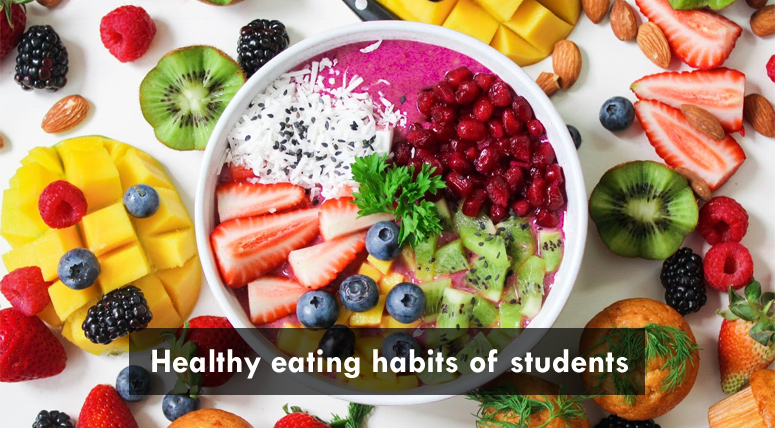In India, there is usually a lot of emphasis on academic performance, sports playing capabilities and extra-curricular achievements of students. Focus on the latter two has increased since emphasis on holistic education has enhanced in the last few years. There is, however, one aspect of a student’s life that still needs a lot of attention but hasn’t hitherto been able to get much – the child’s eating habits.
It is imperative for education practitioners and parents to help students understand the importance of healthy eating habits. This shift in eating habits can only happen when parents and teachers educate themselves on the value of healthy food, healthy food tips and how the right kind of food can play a huge role in impacting various aspects of a child’s wellbeing – his/her energy levels, his/her ability to concentrate on academics, to optimize performance in his/her sport of choice etc.
Every stakeholder involved in a child’s growth and development should be helped to understand the basics of good nutrition and which foods are good for their brain, eyes, muscle development, memory etc. As a next step, these habits should be developed in students and they should be assisted in understanding the value of healthy eating habits rather than being told that eating healthfully is imperative without sufficient context. The importance of a good, time-bound eating schedule should also be explained.
Why is there a rise in unhealthy eating?
As has been observed for many years, children find it hard to adopt healthy eating habits given the allure of appetizing-looking packaged snacks, drool-worthy pizzas and Chinese food that is usually packed with unhealthy sauces and high levels of sodium. However, just laying down rules for healthy eating habits can never usually serve any purpose – if it did, every child would be choosing a wholesome meal with grains, greens, proteins and a side of cut fruit for every meal. But as we all know, that’s not the case and the gap, perhaps lies in the way that children are taught about food.
Importance of healthy eating habits
Students need to be sensitized to the fact that food can play a huge role in their overall well-being. They must be assisted in understanding that eating the right kind of food can help them in every aspect of their growth and development. They should be encouraged to consume good food for the brain such as nuts and seeds, berries, whole grains etc., good food for eyes like green leafy vegetables, eggs, nuts, beans and citrus fruits which can aid in combating the effects of long hours spent reading or in front of digital screens, good food for memory such as walnuts, dark chocolate, leafy vegetables etc.
It is essential to also maintain a good, healthy and well-regimented eating schedule for students and young children.
They should start their day with complex carbohydrates for a shot of energy that lasts them the whole morning. Lunch should also be a mix of good carbs, healthy fats, green leafy vegetables and a necessary portion of protein. Snacks can comprise fruit, fruit juices, smoothies milkshakes etc. The emphasis in dinner should be on protein and it should be lighter than lunch to aid in easy digestion and restful sleep.
SAMPLE HEALTHY FOOD DIET FOR STUDENTS
A sample diet of healthy food for students can be as follows:
7-8 AM: Breakfast of a whole-grain sandwich (with eggs, cheese, vegetables etc.) and a large glass of milk, preferably unsweetened.
12 PM: Mid-morning snack of a healthy salad with unprocessed cheese/ a fruit plate/ a healthy yogurt smoothie
2 PM: Lunch of a small bowl of rice, 2-3 chapatis, a bowl of lentils, a bowl of yoghurt, a small portion of non-vegetarian food (if food preferences allow), a bowl of seasonal vegetables prepared with less oil, a big helping of chopped salad.
5 PM: Evening snack of a healthy and filling fruit milkshake such as a mango milkshake, banana milkshake etc. Avoid having milk with artificial flavorings and mixes.
7-8 PM: Dinner of 2 chapatis, a big bowl of lentils, a seasonal vegetable or a portion of non-vegetarian food (if food preferences allow).





